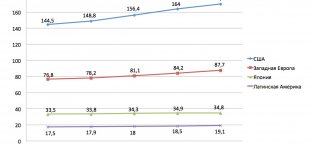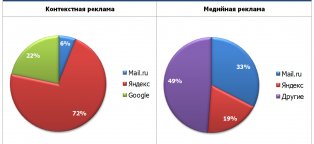Perspectives on Advertising in the London Property Market
Expert opinion provided by 1newhomes. Over the last decade, the real estate market in London has undergone several transformations, driven by a mix of economic trends, technological advancements, and shifts in consumer behavior. In line with these changes, advertising strategies, especially for new developments, have adapted accordingly. In this article, we explore how effective is advertising in the London real estate sector focused on new developments, how current advertising strategies compare with those of previous years, and how will advertising compare with SEO in the benefits the future holds.
A new force in London's real estate market
The traditional methods of advertising, such as print and billboards, have been used in London's property market for a long time. The digital revolution, though, has opened up new ways to promote property. The prevalence of online advertisement (e.g. PPC campaigns, social media marketing, etc.) As a real estate agency, you already can specifically target certain demographics, and geographic areas and you are more in control.
The importance of digital advertising has become more apparent over the past several years. Industry report indicates that more than 85% of the British population has bought something online in the last 12 months alone, emphasizing how important it is to have a solid online grounding. As people consume more online content, real estate agencies have consequently spent more on online advertisement which translates into engagement and increased conversion rates.
Advertising tactics and their results
Marketing new property developments in London is a world of its own. New developers and real estate agencies are using digital advertising tools to promote their new projects. Social media-targeted ads, email marketing campaigns, and property listing site collaborations have been used to reach prospective buyers.
These are such effective digital advertising channels! For example, targeted social media campaigns allow agencies to directly target specific demographics actively searching for new properties, resulting in higher-quality leads. Email marketing helps nurture potential buyers by keeping them informed of project milestones and availability, creating engagement over an extended period. You get more serious inquiries when your ads are posted on well-known property websites.

About SEO in the real estate industry
Search Engine Optimization (SEO) campaigns have become an indispensable part of every real estate digital marketing strategy. Agencies can ensure listings are easy for potential buyers to find by optimizing website content for search engines and improving their organic search rankings. This may include but is not limited to copying or rewriting content, search engine optimization (SEO), and every content that comes with a keyword.
SEO provides a lot of benefits. In contrast to paid advertising that ceases to generate leads as soon as the budget runs out, SEO yields free organic traffic, making it a cost-effective long-term strategy. This is one of the reasons why websites that rank well in SERPs are considered more trustworthy and authoritative by users as high-quality content is often displayed in search results and this boosts the agency's reputation as well.
SEO vs Advertising: what will work better for you in the future?
As we look ahead, advertising and SEO will both be key players in real estate, but the two may perform differently based on goals and timelines. Paid ads provide instant visibility and can generate leads within a matter of minutes, perfect for any new developments that require immediate exposure. But it does need regular input to keep traffic going.
On the other hand, SEO is an evergreen approach that is about building sustainable organic traffic over time. Although the results may take some time to surface, the long-term advantages and cost-effectiveness make SEO an appealing option for agencies looking to incorporate a new online presence. Additionally, with more sophisticated search engine algorithms, the emphasis on high-quality content and user experience—two fundamental aspects of SEO—will only increase, making it all the more important for brands to prioritize both areas.
























